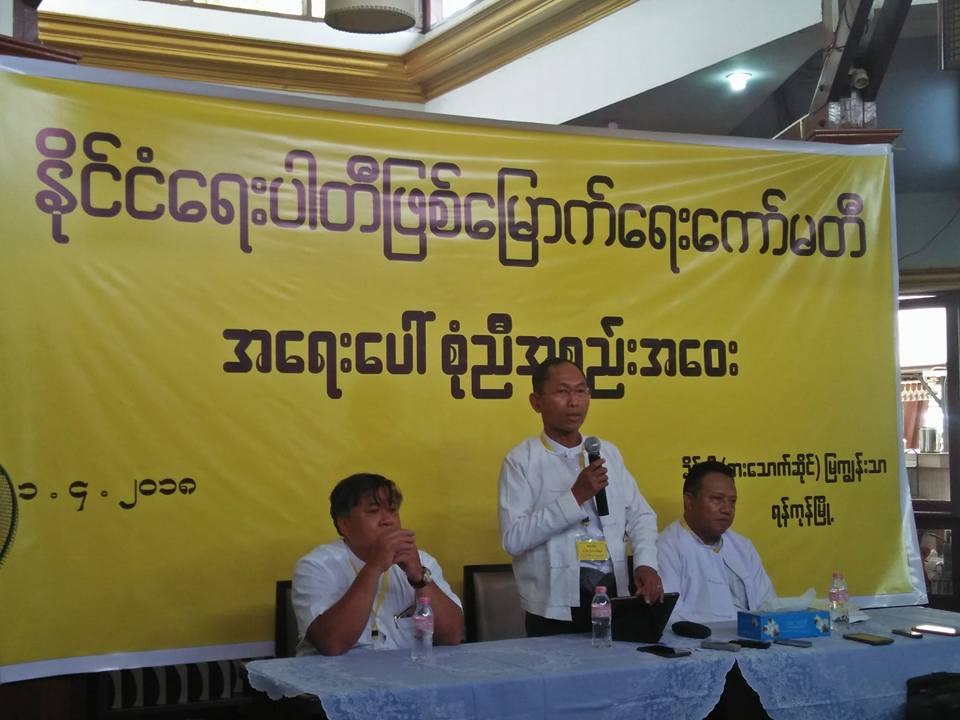In an apparent bow to popular pressure, organisers of an aspirant political party have dropped a contentious effort to affix their brand to numerology that has been a symbol of Burma’s pro-democracy movement for years.
The party, which had previously sought recognition as the “Four Eights People’s Party,” has now decided to call itself simply the People’s Party.
Its leading members — several drawn from the ranks of the 88 Generation Peace and Open Society activist group — had come under criticism for appropriating the 8888 symbology often linked to the 1988 student protest movement, arguably the country’s best-known popular revolt in the name of democracy.
The decision to change the party’s name was made at a meeting on Sunday in Mandalay, where organisers affirmed a commitment to “build a free, peaceful and prosperous country for all people in which justice, freedom and equality is based on removing the darkness of fear, ignorance and poverty.”
Another outcome of the meeting was to agree to a new prospective flag and logo for the party, which will now restart registration proceedings with the Union Election Commission.
Despite — or perhaps as a reflection of — the furore surroundings its name, the party could well make waves as a newcomer in Burma’s next general election: The National League for Democracy’s dominance in the previous iteration (a landmark 2015 vote that brought an overwhelming majority of NLD politicians into the national parliament) has left it exposed to criticism in the years since that it is underperforming in its stewardship of a country that is essentially under single-party rule.
Underperforming at least on the civilian side, that is. Burma’s Constitution has, and will for the foreseeable future, afforded the military considerable political power, from the institution’s effective veto over who changes the charter itself to control over three of the country’s most powerful ministries.
It is the system of governance that NLD leader Aung San Suu Kyi willingly entered into when she successfully ran in a 2012 by-election and subsequently led the NLD to real power more than two years later. It is also the system that any People’s Party would by submitting to the strictures of if it does indeed join the political fray in 2020, or perhaps even before.
[related]
A leading member of the People’s Party registration effort is Ko Ko Gyi, who was among the most conspicuous omissions from the NLD’s slate of candidates for the 2015 general election. It was a roster that sparked internal dissent and several defections, with the selection process criticised by some as top-down and lacking local input.
As is Suu Kyi, Ko Ko Gyi is a former political prisoner who has been a familiar face in Burma’s pro-democracy circles for decades, and Suu Kyi has often appeared at public events with leading members of the 88 Generation Peace and Open Society.
There are about 90 political parties officially registered in Burma, but relatively few saw electoral success in 2015. The NLD won nearly 80 percent of elected seats in the Union Parliament, trouncing the formerly ruling, military-backed Union Solidarity and Development Party.
With reporting by Aung Aung Naing



